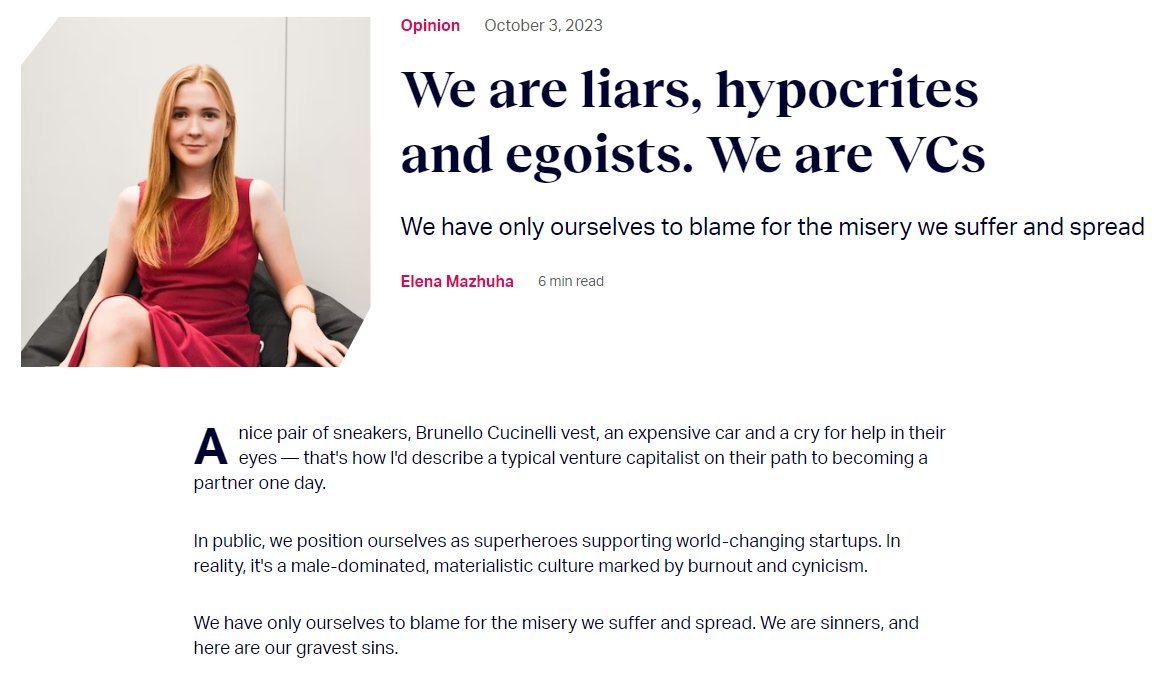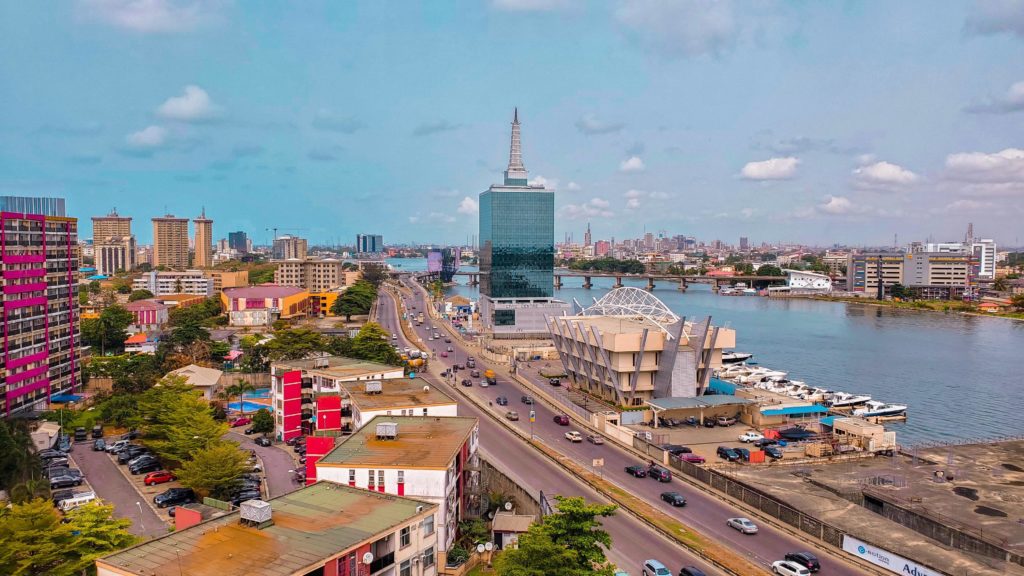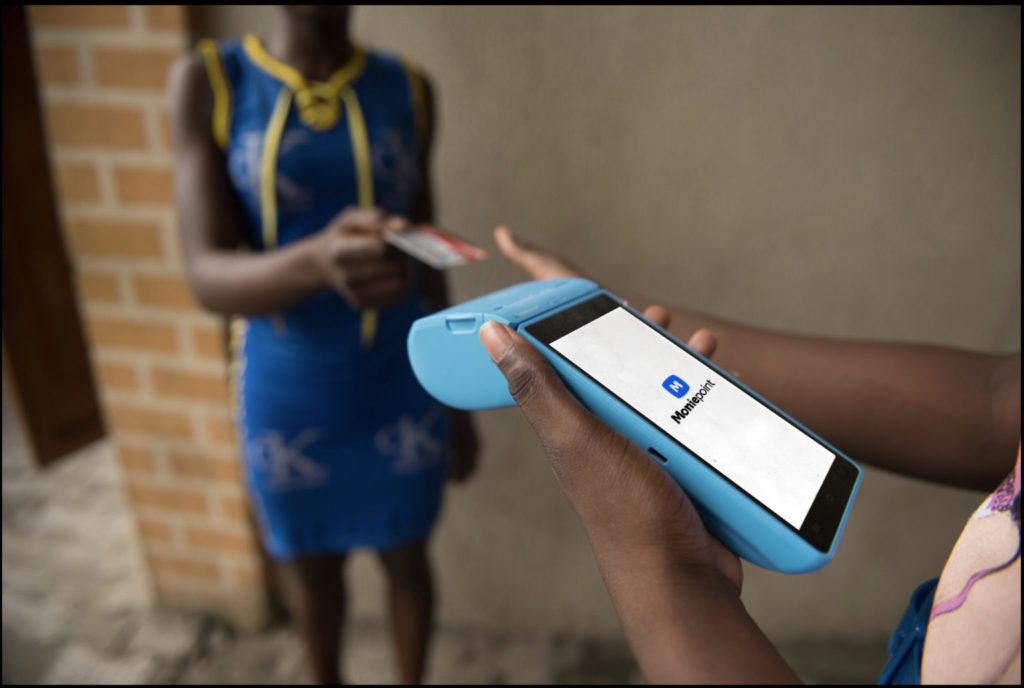
First published 15 October 2023
This week’s Next Wave is a double-decker. First, TechCabal’s Moonshot is well on its way to defining the value that technology industry events in Africa can create, I am proud to report. And I have a question for investors getting cold feet and second thoughts about VCing.
I had initially written about tech events needing a bit of inventiveness to become relevant. But what TechCabal’s Moonshot conference taught me was that sometimes new things are overrated and that the basic pillars of truly valuable events do not really change. If you make people feel good about being in a room with others, provide opportunities for them to meet people they respect, deliver solid content and minimise boring paternal keynotes in favour of insight and fun, your event will win! Especially if the event execution is as close to perfect as you can humanly manage.
It also helps to build up to the event. It is probably no coincidence that TechCabal’s biggest and best annual event so far was organised 10 years after the first TechCabal article was published. One hundred and twenty-one months ago, Odunayo Eweniyi was writing (as a TechCabal reporter) about interesting tech events to attend in July 2014. Last week she was speaking at the biggest tech event of the week in Lagos, and Piggyvest was a key sponsor. The world goes round and is not flat.
Someone said Moonshot has the potential to become that one pan-African tech industry event that everyone looks forward to every year. That means we sowed a good seed, and we’re looking forward to the next Moonshot in October 2024!
Next up on the event trail, I’m in the Dubai World Trade Center for GITEX Global throughout this week and looking forward to “Capital Meets Innovation” at Norrsken Africa Week Kigali in early November. If you’ll be at the Dubai Harbour or DWTC, hit reply and we can find some time to talk tech events, what I’m researching about Africa’s digital market, and the more important stuff like… whether VCs still believe in venture capital (see below).How many VCs still believe in VCing?
It’s easy to talk about how African entrepreneurs will face more challenges with raising funding because VCs dashed (a Nigerianism for a gift, typically in cash) millions of dollars to poorly thought-out venture experiments or outright fake businesses. A lot of people like to talk about this and go on and on about it. I don’t. I intensely dislike the discussion because not only is it distracting, it is fodder for bad assumptions and priors. Priors in this sense is the statistical probability of an outcome regardless of unknowns. For me, the meaning of new reports detailing bad founder behaviour is simple. Everyone needs to grow up and stop being sheep.
Speaking about being sheep, from late 2022 it began to be obvious that a bubble burst was underway. The battle cry from the global VC community switched from speed-writing cheques to calling for profitability almost overnight. Sheep can turn on command, but whaling ships cannot do snap turns no matter how loud the captain shouts at the steering wheel. More notably, the entire point of being a venture investor, if we go back to the original legends that spawned this asset class, is that VCs are specialised middlemen who connect extraordinarily promising risk with capital sourced from sombre pockets.
The moment we miss this and begin to build an asset class that behaves more or less like the human version of a hedge fund trading algorithm, the more we set up venture capital to become a perpetual cyclical machine that is 100% in sync with public market sentiment. This is the opposite of a mostly outlier-defined investment class. In September I tweeted: “How many VCs still believe in Vcing?” And here’s a tweet by Stephen that captures a big part of my worry.
I'm very worried African VC is going to entrench itself in multiple-based tunnel vision at the earliest stages.
— Stephen Deng 邓广藻 (@mrstephendeng) October 5, 2023
Conservatism was needed after '20-22 but exchanging the comfort of momentum-based investing with rigid metrics-only investing is a disservice to founders with vision.
To put this another way. If blindly following trends brought us here, what makes metric-focused investors think that driving a hard bargain based solely on relatively arbitrary measures in Africa’s still largely untested markets will not yield the same averaged-out result of mediocrity if not failures?
Article continues after this ad
In the last few months or so, I’ve seen a lot of takes about venture capital. Everyone from purebred venture capitalists to social impact VCs, hedge fund and traditional fund managers, to public market analysts have an opinion, hand-wringing or unabashed schadenfreude they derive from the collapse of the short-lived roaring 2020s in VC land.
Some parts of this are worrying, but other parts are funny to watch or read, especially the full-throated gloating comments on Financial Times articles by traditional asset managers. What is clear, though, to me is that the world of venture capital is undergoing an identity crisis like never before—even the infamous dot-com bubble did not create this type of self doubt. One European VC even published a missive on Sifted.com listing the “Five deadly sins of VC”. Shout out to you, Elena Mazhuha. I appreciate the boldness even if the original heading was edited.

A lot of the VCs I know and interact with often, and deeply respect, do not conform to the image Mazhuha painted. But as I texted an investor I respect some weeks ago, taken together with the Twitter threads, podcasts and whatnot, the venture capital asset class is sliding ever deeper into an identity crisis that strikes deep at the heart of its founding philosophy. And African investors are not immune.
Here’s a Sam Lessin tweet that, in my opinion, captures one frame in the moving film of the venture capital identity crisis. Identity crises create the perfect environment for loss of confidence and lots of second-guessing. Tweets like this from Will Manidis, a Thiel Fellow and former fund manager that poke harmless fun at VC returns on average, do not help fragile egos or the “vibe” if you’re a VC drowning in depressed returns, courtesy of 2023.
But moments of widespread industry self-doubt are also moments where leadership emerges. It was true in the dowturn of the Paul Volcker rate hikes of the late 1970s, and in the aftermath of the dot-com bubble. And it may just be true for the investors nursing bubble sickness today — if the right lessons are learned. In the next Next Wave, we’ll discuss what this leadership could look like. In the meantime, feel free to drop me an email to share your thoughts or find a time to talk. My email is abraham[at]bigcabal[dot]com.
Partner Content:
Manilla has kicked off its Initial Coin Offering (ICO) after a $510,000 raise, guided by a team of accomplished Web3 veterans
Abraham Augustine,
Senior Reporter, TechCabal.
We’d love to hear from you
Psst! Down here!
Thanks for reading today’s Next Wave. Please share. Or subscribe if someone shared it to you here for free to get fresh perspectives on the progress of digital innovation in Africa every Sunday.
As always feel free to email a reply or response to this essay. I enjoy reading those emails a lot.
TC Daily newsletter is out daily (Mon – Fri) brief of all the technology and business stories you need to know. Get it in your inbox each weekday at 7 AM (WAT).
Follow TechCabal on Twitter, Instagram, Facebook, and LinkedIn to stay engaged in our real-time conversations on tech and innovation in Africa.






















